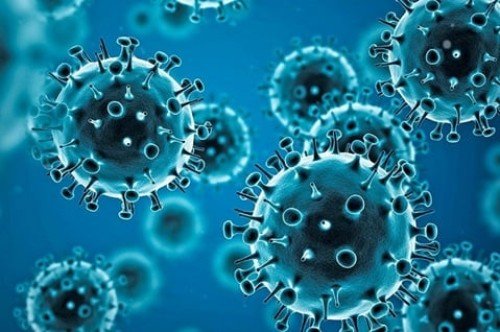
The coronavirus (COVID-19) is a highly infectious respiratory illness caused by the severe acute respiratory syndrome coronavirus 2 (SARS-CoV-2) that emerged in late 2019 in Wuhan, China. Since then, the virus has spread rapidly across the world, leading to a global pandemic.
The virus spreads through respiratory droplets when an infected person talks, coughs, or sneezes. It can also spread through contact with surfaces contaminated with the virus. Symptoms of COVID-19 can range from mild to severe and can include fever, cough, shortness of breath, fatigue, body aches, and loss of smell or taste.
To prevent the spread of COVID-19, it is important to follow guidelines issued by health authorities, such as the World Health Organization (WHO) and the Centers for Disease Control and Prevention (CDC). These guidelines include:
-
Wear a mask: Wearing a mask in public can help prevent the spread of the virus.
-
Social distancing: Maintaining a distance of at least 6 feet from others can also help prevent the spread of the virus.
-
Wash your hands frequently: Washing your hands with soap and water for at least 20 seconds can kill the virus on your hands.
-
Avoid crowds: Avoid large gatherings where the virus can easily spread.
-
Stay home if you feel sick: If you have symptoms of COVID-19, stay home to avoid spreading the virus to others.
Scientists around the world are working to develop treatments and vaccines to prevent and treat COVID-19. Several vaccines have been developed and authorized for emergency use, and they have been shown to be highly effective at preventing severe illness, hospitalization, and death from COVID-19.
However, the pandemic is far from over, and it is important to remain vigilant and follow public health guidelines to prevent the spread of the virus. While vaccines are a critical tool in the fight against COVID-19, they are not a guarantee that the pandemic will end soon.
In addition, new variants of the virus have emerged, and some of these variants may be more contagious and more resistant to vaccines. This highlights the importance of continued research, monitoring, and public health efforts to control the spread of COVID-19.
The COVID-19 pandemic has had an unprecedented impact on the world, affecting the health, social, and economic well-being of millions of people. The pandemic, caused by the novel coronavirus, has spread rapidly across the globe, leading to widespread illness, death, and economic disruption.
The pandemic has highlighted the importance of preparedness, both at the individual and societal levels. Governments, organizations, and individuals have had to adapt quickly to the changing situation, implementing measures to slow the spread of the virus and mitigate its impact.
One of the most important measures implemented to combat the pandemic has been social distancing. This involves avoiding close contact with others, staying at home as much as possible, and wearing masks when in public. Social distancing measures have been implemented worldwide, and have been shown to be effective in slowing the spread of the virus.
Another important measure has been increased testing and contact tracing. This involves identifying people who have been in close contact with someone who has tested positive for the virus, testing them for the virus, and quarantining them if necessary. This has helped to identify and isolate infected individuals, preventing the spread of the virus.
The pandemic has also highlighted the importance of research and innovation. Scientists around the world have been working tirelessly to develop treatments and vaccines to prevent and treat COVID-19. Several vaccines have been developed and authorized for emergency use, and they have been shown to be highly effective at preventing severe illness, hospitalization, and death from COVID-19.
However, the pandemic has also exposed existing inequalities and disparities in access to healthcare, education, and other essential services. It has disproportionately affected marginalized communities, including people of color, low-income households, and people with disabilities.
The pandemic has also had a profound impact on the global economy, leading to widespread job loss and economic instability. Governments and organizations have had to implement measures to support individuals and businesses affected by the pandemic, including stimulus packages, loan forgiveness programs, and other forms of financial assistance.
COVID-19 pandemic has had a profound impact on the world, highlighting the importance of preparedness, social distancing, research, and innovation. It has also exposed existing inequalities and disparities, and has had a significant impact on the global economy. As we continue to navigate the pandemic, it is important to stay informed and follow public health guidelines to protect ourselves and our communities.
In conclusion, COVID-19 has had a profound impact on the world, affecting the health, social, and economic well-being of millions of people. While there are still many unknowns about the virus, it is important to stay informed and follow public health guidelines to protect yourself and others from COVID-19.








